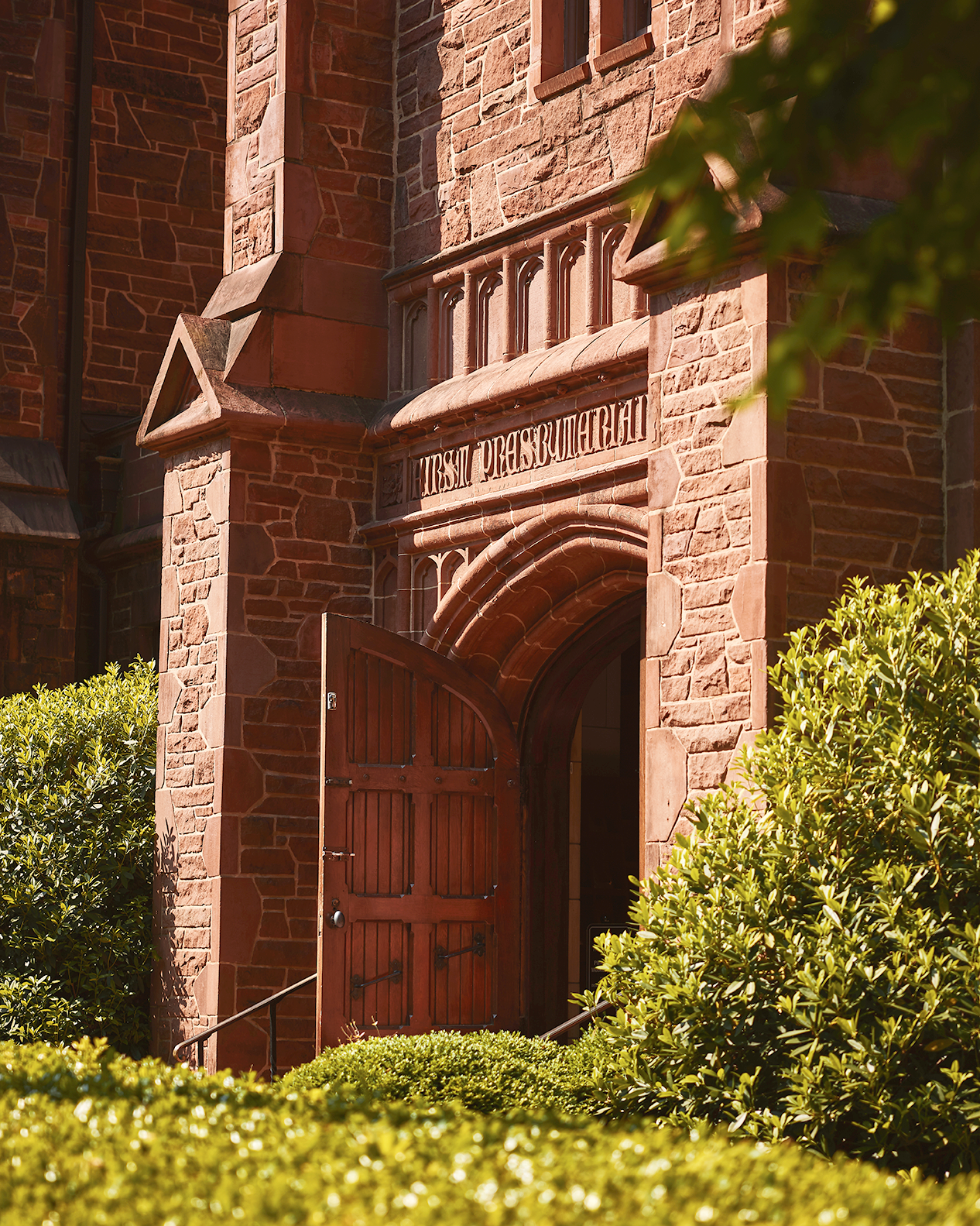The Science of Service

Industry experts share insights on how the church can fulfill its mission of hospitality
On a sunny early spring morning, Eddy Romero—dressed in a dark suit with a starched white shirt and tie—is overseeing the concierge center at Atlantic Station. Before he became the mixed-use development’s chief concierge a decade ago, he was a veteran of guest relations work at the World of Coke and the Fox Theatre. He took big-shot corporate executives on tours of the Coke museum. At the Fox, he escorted numerous celebrities in town for performances, including George Burns, Carol Channing, Rudolph Nureyev, Kathy Rigby, and Sarah, Duchess of York.
In greeting visitors, “you need to be gracious, make eye contact, welcome people as they come in,” he said. “Be well-informed. Part of being hospitable is knowing what services are available.”
Romero would like to see the church hire a professional concierge to train volunteers in both facts and presentation. More than half of communication is body language, he said. “You can say a lot with your body.”
Another idea he offered is to have site maps of the facilities for visitors and pamphlets about the restaurants and attractions around the church for people visiting from nearby hotels. Rather than putting material on a rack for people to pick up, he would prefer someone hand them to the visitor. That’s a way to engage in conversation as well as learn about the newcomer, he said.
On the other side, hospitality workers can follow the church’s example by being more compassionate, focusing on serving others and listening more, as opposed to talking, he said.
Hospitality is about making people feel welcome and appreciated.
About the time Eddy Romero was starting work at Atlantic Station, Bruce and Anna Logue were opening BoccaLupo, a restaurant in Inman Park that is both a popular neighborhood eatery and a food destination. Reservations are filled weeks in advance with people seeking house specialties such as black spaghetti and chicken liver ravioli.
A restaurant, like a church, draws many different types of people, both as staff and as diners, Bruce Logue said. “You learn to work with everyone. It’s how to be productive, to get things done.”
In restaurants and in churches, difficult situations arise, he said. “Not everyone is happy. People come in the door in different ways. Some have a sense of entitlement that really tests your patience.”
With difficult personalities, Logue tries to call on his Christian faith, striving to treat people as fellow children of God. “Having some kind of true north, some moral compass, could help a lot of people in our industry,” he said.
For almost sixteen years, Heather Balsley has worked for the Intercontinental Hotel chain and its seventeen affiliate brands. She serves as a marketing executive.
“In general, you’re always looking to create a sense of welcome and community,” she said of the hotel business. Hotels host both groups and individual travelers, many of whom are away from their homes for days conducting business. By creating spaces where people can work in the company of fellow travelers, hotels can alleviate some sense of aloneness, she said.
“You need to be gracious, make eye contact, welcome people as they come in. Be well-informed. Part of being hospitable is knowing what services are available.”
EDDY ROMERO
Happy hour gatherings give people a chance to converse with other guests. “It’s amazing when you see independent travelers gravitate to those small gatherings,” she said. “It doesn’t have to be a big deal or a long event to create a sense of community.”
Balsley would like to see hotels take a cue from the church by offering hospitality to people in need. “A hotel, for example, could partner with outreach programs,” she said. “It’s rare that a hotel is 100 percent full. Are there ways to use rooms differently?”
Obviously, hotels must make a profit to stay in business, she said, “but we see our role as supporting the communities where we operate. I think we have a lot to learn from nonprofits and churches about being a business that’s part of the community, rather than just a building that sits on the corner.”
First Presbyterian does more than sit on the corner. It is a community of faith, whose mission is to continue a long heritage of being an essential part of the community in Midtown, the city, and beyond. That mission requires hospitality to all who come.

